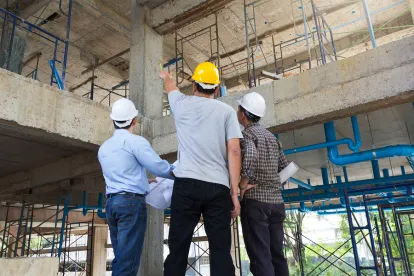Office tenants negotiating letters of intent (LOIs) and leases during the novel coronavirus pandemic should pay particular attention to issues of timing for premises that are being improved in any fashion. Buildouts impact rent commencement and delivery, but typical lease terms do not always protect tenants in an equitable manner. With cash flow also being an issue during the pandemic, understanding how improvement allowances work is imperative.
Buildout Work
-
Issues to consider about the buildout depend greatly on who is doing the work. Timely performance of the work impacts space delivery and rent commencement and the effect of the pandemic on such work needs to be considered from various angles.
-
If tenant is performing the work, it is imperative to be realistic about how the pandemic could impact the buildout not only because the lease is likely to contain deadlines for various milestones (such as completion of plans), but also because your rent commencement date is usually going to be tied in some fashion to your estimated timing for completion of the buildout work. Potential delays to take into account in developing your construction schedule are:
-
Will you be able to timely create plans and get landlord’s consent to those plans?
-
Are permitting offices open or anticipated to potentially close?
-
Are inspections by governmental authorities continuing to take place? Are they delayed?
-
Is there the potential for unavailability or longer than usual waiting times for any of your finishes or materials to be used in the buildout?
-
Will the proposed general contractor and subcontractors be able to work during any governmental closures?
-
Do the contractors have sufficient personnel to continue the work to substitute for any personnel who become sick with COVID-19?
-
Are contractors implementing any social distancing measures during performance of the work which could impact how long the work takes to perform?
-
Be sure to expressly address what happens if the building is closed and construction cannot occur at all.
-
-
If landlord is performing the work, the lease language is likely to protect landlord in the event of any delays.
-
Due to the pandemic, tenants should assume that there will be delays in performance of the work and accordingly consider the ramifications of late delivery, including on their existing leases (see Part I of this series for Delivery Delay considerations).
-
Tenants should not assume that the only ramification of late completion by landlord is a delay in delivery of the space, as lease terms sometimes transfer the risk of delay to tenants by effectively severing the link between delivery and rent commencement in surprising ways.
-
For example, leases in which landlords perform the buildout usually contain a concept called “tenant delay,” which can result in rent commencement occurring prior to the buildout being complete. It is not unusual for the definition of a tenant delay to be expansive, often encompassing situations having nothing to do with a tenant actually causing the delay. For example, a lease may state that buildout materials which are long lead-time items may be considered a tenant delay, or delays outside of landlord’s control are a tenant delay. Both of these scenarios are more likely to occur during a pandemic. Tenants should pay particular attention to such provisions to avoid unintentionally agreeing to pay rent before they even get the space.
-
-
Delays in buildout might also occur as the result of insufficient funds. Tenants should maximize protections in their leases against landlord’s failure to timely pay improvement allowances which could cause such delays.
Improvement Allowances
-
In instances where the landlord performs the buildout work but is responsible for the attendant costs only up to a cap (sometimes referred to as “landlord’s contribution” or “improvement allowance”), tenants need to be particularly careful to have a lease that protects them from unexpected cost overruns.
-
While such prudence should be exercised at all times, it could be of particular import during the pandemic, when construction costs might unexpectedly change, whether due to material cost increases resulting from supply chain issues, or shortages in labor.
-
-
If tenant is performing the buildout work and receiving an improvement allowance from the landlord, a tenant needs to be sure that landlord’s reimbursement obligations in the lease comport with tenant’s expectations (e.g., is landlord paying your contractors directly, or reimbursing tenant after tenant makes such payments?)
-
Additionally, since cash flow has quickly become a concern for all manner of businesses during the pandemic, lease terms should be negotiated to minimize the risk of landlord not having the funds to pay the allowance.
-
-
Be sure to pay attention to force majeure provisions and be explicit about whether landlord’s failure to timely pay an allowance may be excused by a force majeure event. Remember that if the landlord fails to pay, your contractor will look to you for payment.
Force Majeure
Much has been written lately about force majeure provisions in leases, with tenants questioning whether such provisions excuse nonpayment of rent (virtually all such provisions state that rent payment is not subject to force majeure). Tenants currently negotiating leases should be explicit that pandemics fall under the rubric of force majeure, but they also need to be explicit about expectations on how force majeure impacts buildouts and allowance payments. For example, can a pandemic delay landlord’s payment of an improvement allowance? Does it delay the deadline for the party performing buildout to get permits or timely furnish plans? Tenants will need to work with landlords to come up with equitable answers to these questions while the lease is negotiated, or else risk disagreements about these matters later.





 />i
/>i

